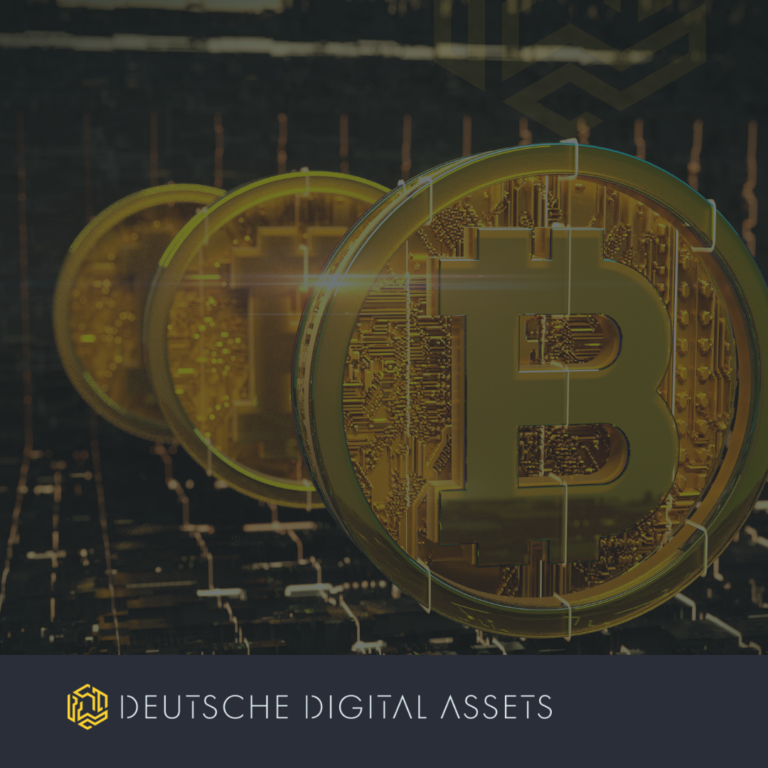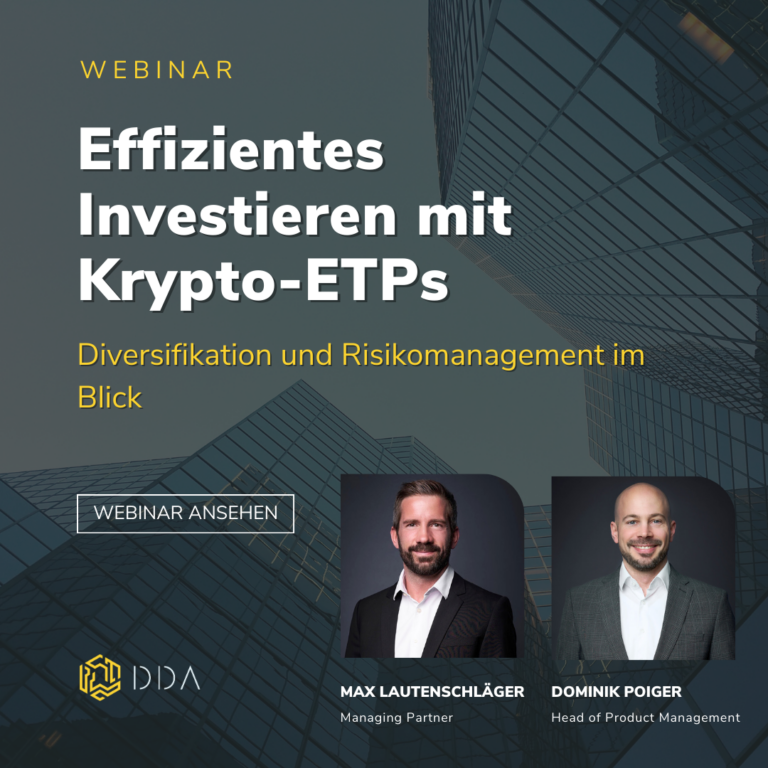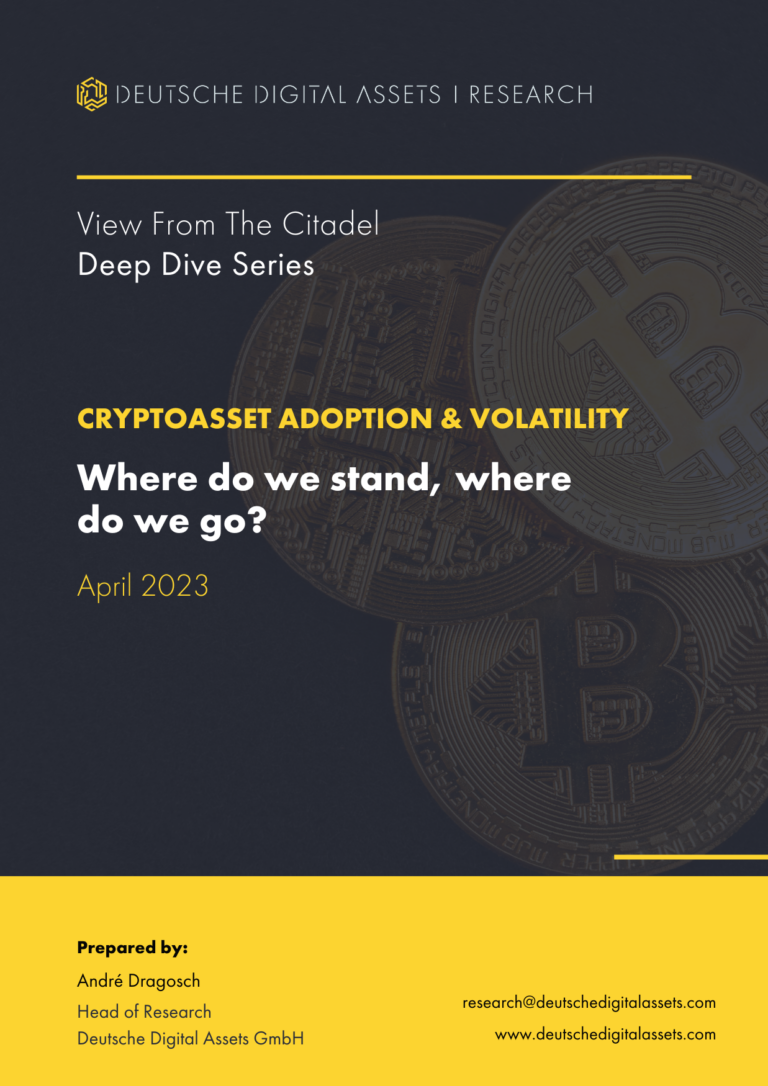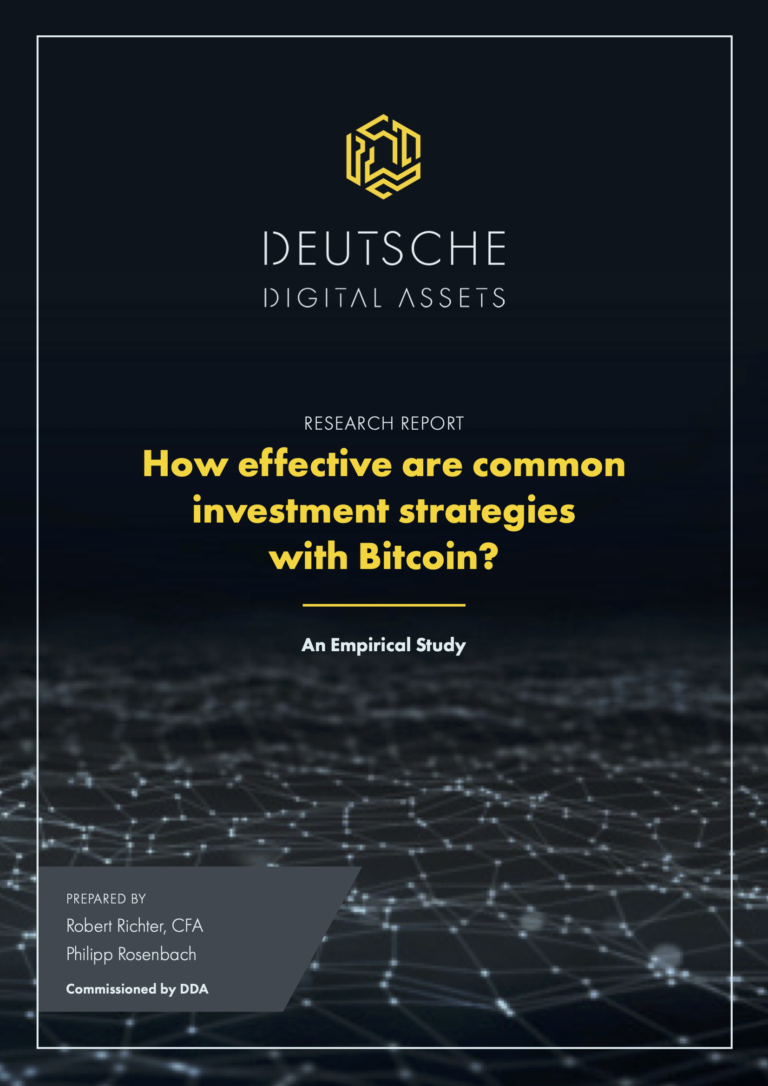
Today, it’s easier for institutions to invest in Bitcoin than it’s ever been. Thanks to a friendlier regulatory environment combined with publicly traded Bitcoin investment products, access to Bitcoin has been simpler than ever before for traditional investors. All this has been made possible by the institutionalization of bitcoin as an asset class, which now boasts a broad ecosystem composed of regulated exchanges, liquid derivatives markets, qualified custodians, publicly traded bitcoin companies, and even a Bitcoin ETF. Let’s dive in and explore how far along we are with the institutionalization of Bitcoin and what that will mean for crypto investors going forward.
What is Bitcoin Institutionalization?
KPMG defines the institutionalization of crypto assets as the “at-scale participation in the crypto market of both traditional and emerging players within the global financial services ecosystem,” which includes the likes of investment banks, broker-dealers, investment management companies, and payment providers.
In a nutshell, the institutionalization of Bitcoin refers to the digital currency moving from an exciting investment reserved primarily for retail investors to becoming an institutional asset class at par with stocks, bonds, and commodities.
As the Bitcoin trading ecosystem continues to mature and merge with the traditional financial markets, the institutionalization of Bitcoin is in full swing.
A few years back, most institutional investors only invested in Bitcoin through derivatives, such as the CME Bitcoin Futures, and investment vehicles, such as the Grayscale Bitcoin Trust or the Galaxy Digital Bitcoin Fund LP.
Thanks to the ongoing institutionalization of the crypto markets, however, institutional investors have a much broader range of opportunities to gain exposure to Bitcoin today. With the emergence of qualified crypto custodians, institutional investors can even invest in bitcoin directly and store them with a custodian.
With the combination of a maturing Bitcoin trading ecosystem and Bitcoin’s impressive historical returns, it’s no surprise that Wall Street is moving in on crypto.
Wall Street’s Going Crypto
On October 19, 2021, the first US-based Bitcoin ETF hit the New York Stock Exchange. Needless to say, the first Bitcoin ETF listing on the world’s largest stock market is a big deal.
Not only does it confirm Wall Street’s growing appetite for crypto and US regulator’s willingness to (finally) accept Bitcoin as an asset class, it also has the potential to attract a wave of new money (both from institutions and retail) into Bitcoin.
Additional Bitcoin Futures-based ETFs are expected to launch as well, now that the SEC has given the green light to Bitcoin Futures ETFs.
But it isn’t just investment managers who are actively addressing the strong demand for Bitcoin. Despite their history of anti-Bitcoin behavior, US investment banks are now also diving headfirst into crypto.
- Morgan Stanely was the first US bank to expose its wealth management clients to Bitcoin funds in Q1/2021.
- Bank of America recently rolled out coverage of crypto assets, claiming that the market was “too large to ignore.”
- JPMorgan has also started providing cryptocurrency fund support to its wealth management clients in early summer 2021.
And they aren’t the only ones. Goldman Sachs, Citi, Wells Fargo, and several other Wall Street banking giants are building out crypto teams and working on rolling out crypto products to meet customer demand.
There is an increasing demand for Bitcoin products in traditional finance, and investment banks are no longer hesitating to meet this growing need. Banks that haven’t gone crypto yet are going to have to ensure that they won’t be left behind.
What Does the Institutionalization of Bitcoin Mean For Crypto Investors?
When institutional investors and public companies pour money into Bitcoin, an increase in Bitcoin’s market value is typically the result.
“Institutional investment in Bitcoin has long been considered paramount to reach a multi-trillion-dollar market capitalization,” Arcane research wrote in a report. This was seen during the Q1/2021 bull run when Bitcoin’s market capitalization surpassed the $1 trillion mark. Corporate treasuries and institutional investors buying the digital currency was a key driver behind that rally.
The maturing of the Bitcoin trading ecosystem will also mean deeper liquidity and most, likely, more price stability. While we can still expect steep price corrections as we have seen in the past, Bitcoin’s day-to-day volatility has been decreasing over time. This is a trend that will likely continue as Bitcoin becomes more widely traded.
With decreasing intra-day volatility, we can expect more investors to flock towards Bitcoin as it will eventually no longer be classified as a high-risk investment. This, in turn, could also help to push up the digital gold’s price another leg higher.
The institutionalization of Bitcoin is also helping to change the minds of the few remaining Bitcoin skeptics as it’s becoming increasingly challenging to argue against the validity of an asset that is now traded (albeit via an ETF) on the New York Stock Exchange.
In the Bitcoin bull market of 2017, there were still plenty of folks who argued that once the bubble popped, the value of Bitcoin would go to zero. While that bull market came to an end and the price of Bitcoin dropped significantly, the digital currency reached a new all-time high three years later, silencing many of its critics.
The institutionalization of Bitcoin has helped to pave the way for more money to flow into Bitcoin, thus increasing the value of the digital gold.
That’s why – despite the anti-Wall Street ethos of Bitcoin – many Bitcoiners are welcoming the institutionalization of Bitcoin. The more money pours into Bitcoin, the more funds are available for Bitcoin startups and advocates to succeed at their missions.
When a fund manager in New York buys Bitcoin via a Bitcoin ETF that doesn’t help to bank the two billion unbanked individuals across the globe. However, it could help to boost the price of Bitcoin, which, in turn, will enable Bitcoin companies who are building products and services aimed at banking the unbanked to grow faster as their Bitcoin holdings will increase in value.
The acceptance of Bitcoin as an asset class will likely lead to further adoption, not just as an investment but also as a currency. With more and more people holding bitcoin and intra-day declining, Bitcoin will have a better chance of eventually becoming a widespread medium of exchange. Fundamentally, that is what many of us Bitcoiners would like to see.
Ironically, it may end up being the folks on Wall Street who help to push Bitcoin to become the global currency that many of us envision it would be.
Final Thoughts
While the institutionalization of Bitcoin may sound a bit of an oxymoron, if you hold cypherpunk values would like to see “Bitcoin eat the banks,” but the reality is that institutional investors piling into Bitcoin is most likely net-positive for Bitcoin, the Bitcoin community, and the world.
The more funds pour into Bitcoin, the more money the Bitcoin community has to make the changes they want to see in the world.
About Iconic Funds
Iconic Funds is the bridge to passive and actively-managed exposure to crypto. Iconic Funds, via its subsidiaries, offers crypto asset ETP’s, diversified index funds, and alpha-seeking strategies for investors.
Iconic Funds’ mission is driving the adoption of crypto assets. As the bridge for investors to gain exposure to Crypto Assets, Iconic’s licensed and regulated vehicles offer investors a menu of investment choices ranging from passive index exposure to actively-managed strategies. Iconic Funds removes the technical risks of crypto investing by offering investors trusted and familiar means to invest in crypto at industry-leading low costs.
The marriage of state-of-the-art technology, innovative investment products, and uncompromising professionalism places Iconic at the vanguard of crypto asset management.
- Analyzing the Primary Value Drivers of Leading Cryptocurrencies ➡ Download here
- How Effective are Common Investment Strategies with Bitcoin? ➡ Download here
- Investigating the Myth of Zero Correlation Between Crypto Currencies and Market Indices ➡ Download here
For further information, please visit deutschedastg
Legal Disclaimer
In no event will you hold ICONIC HOLDING GMBH, its subsidiaries or any affiliated party liable for any direct or indirect investment losses caused by any information in this article. This article is not investment advice or a recommendation or solicitation to buy any securities.
ICONIC HOLDING GMBH is not registered as an investment advisor in any jurisdiction. You agree to do your own research and due diligence before making any investment decision with respect to securities or investment opportunities discussed herein.
Our articles and reports include forward-looking statements, estimates, projections, and opinions which may prove to be substantially inaccurate and are inherently subject to significant risks and uncertainties beyond ICONIC HOLDING GMBH’s control. Our articles and reports express our opinions, which we have based upon generally available information, field research, inferences and deductions through our due diligence and analytical process.
ICONIC HOLDING GMBH believes all information contained herein is accurate and reliable and has been obtained from public sources we believe to be accurate and reliable. However, such information is presented “as is,” without warranty of any kind.
















